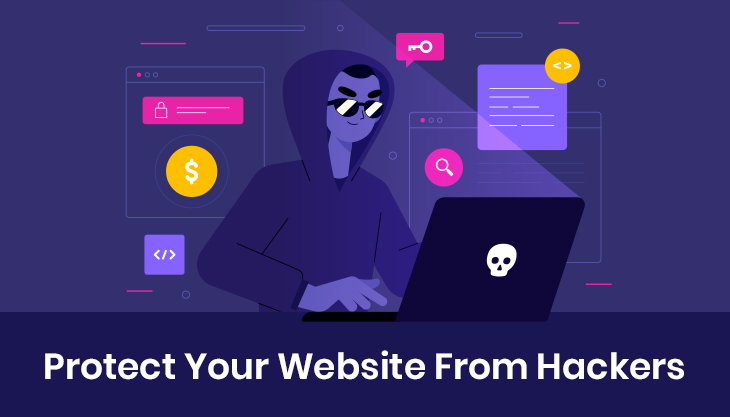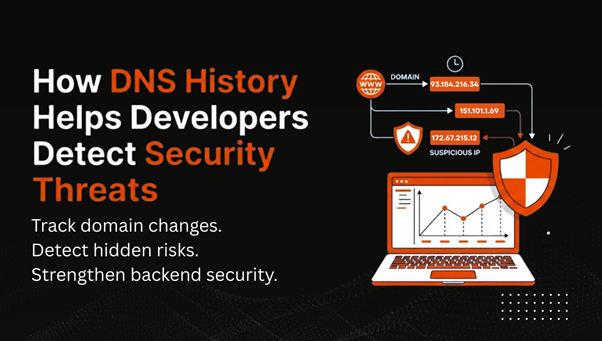There is one Hacker attack every 39 seconds; while identifying the security breach and containing it takes on an average 314 days. In short, identifying and repairing hacker attacks is time consuming and it is heavy on the pocket. For example in 2018, hacker attack cost a loss of $600 billion to the world.
Now that you are aware of the money that hackers can cost you, don’t you think it’s better to Protect your Website from Hackers? After all, ‘Prevention is better than cure’. To understand what measures to take to protect your business website from Hacker attacks, you need to first understand what exactly hacking is, and the different ways in which your websites can be attacked.
What Is Hacking?
Hacking includes all the unlawful activities by cybercriminals/hackers who compromise digital devices for getting financial gains, collecting customer data or money, sending spam emails, gaining information with the purpose of spying, selling illegal products on your website, as a form of protest, or even just for the fun.
Thus, hacking is of a technical nature done by rather technical wiz. It includes techniques such as
Malvertising, where malicious codes are injected into legitimate advertising networks to redirect the users to malicious websites,
Social engineering, where users are psychologically manipulated to divulge sensitive information,
Denial of service/DDoS attacks, where infected malware is used to crash web server so users are unable to connect,
Ransomware where malwares deny you access to your system and personal files and then ask for ransom payment to regain access,
Viruses, where malwares self-replicate to corrupt the system and destroy the data,
Trojans, where malwares use simple social engineering tricks to tempt users, and if users install them, they can cause various damages, etc.
Now that you are aware of the various ways in which hackers can attack your web site, let’s take a look at how you can prevent such attacks from happening to your website. After all, it’s your reputation as well as money at stake.
5 Security Tips To Protect Your Website From Hackers:
-
Be Up-to-date With Your Updates:
This is not a tongue twister; this is the first and foremost step towards Website security. Hackers are always scouring for websites for any vulnerability in your security. Thus, keeping all you operating system software, other software including the CMS i.e. Content Management System, the forum, etc. updated is very much necessary. Even the software of your hosting server should be updated. So, while selecting a hosting server, be sure to select one which is well reputed with its security. Or else you can simply get your website hosted by a hosting provider. They will be taking care of the most of the security of your website.
-
Enforce Good Password Practices:
Implement strict password policies and keep a tab to check if they are being followed. So, tell all your users about the need for a strong password and explain to them good passwords practices which include having minimum of 8 characters and a mix of upper and lower case alphabets, numbers, and also special characters. Also, while storing passwords for authentication of the user, store in an encrypted form. Use of one-way hashing algorithm and salting passwords are good security measures.
-
Install Firewall And Website Security Tools:
In order to Protect your Website from Hackers, make sure to install a robust Web Application Firewall (WAF) and restrict the outside access. WAFs are cloud based and act as a gateway for your website server and data connection. They block hacking attempts such as incoming spammers, malicious bots etc. by filtering all the incoming data and traffic. Also, make use of Website Security Tools – both paid as well as free – which are available today. These tools offer various security solutions such as DDoS and bot protection, malware and vulnerability scan, firewall installation, etc.
-
Protection From XSS And SQL Injection Attacks:
XSS or Cross-Site Scripting is a method of hacking, wherein the hackers inject JavaScript or other malicious scripting code which can change the content of webpages. Thus, whenever your users access your webpages, the credentials which they enter and even their login cookie details can be stolen. Similarly, hackers also can make SQL injection attacks wherein they insert rogue code to get access into and change or manipulate your database. Use of standard Transact SQL can give hackers an opportunity for an SQL attack, and thus you should used Parameterized queries.
-
File Uploads:
Sometimes your website requires users to upload files. This is a great security risk. File uploads can get in bugs and even allow hackers access to your site’s data. So, you should suspect every file upload. The best way is to prevent the uploaded files from getting any direct access. So, store the files outside the web root directory; which you can access by getting them delivered to the browser by using a script
These are the 5 Security Tips for protection of your website. Of course, if you get your website developed from a well established Website development company, many security measures will be taken care of by them too.















Post Comments